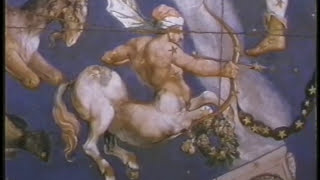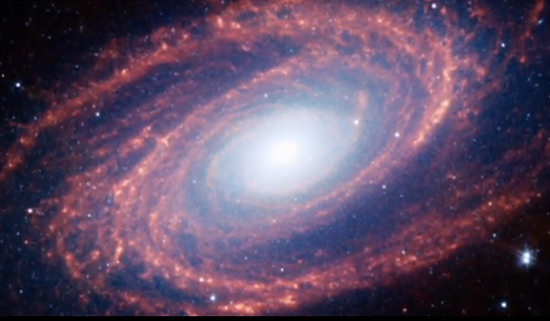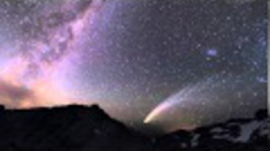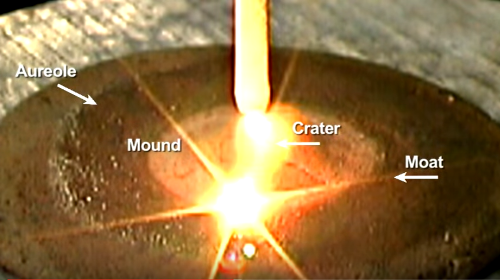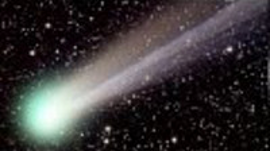
Electric Disconnection
Original Post December 31, 2012 Problems with various theories could be resolved if mistaken identity were considered. It has been demonstrated over the centuries that the worst possible witnesses in court are often those who were present at the scene of the crime. There are documented cases of people being ...

Windy Waves
Original Post December 13, 2012 Wind socks, bow shocks, shockwaves and collisions are often used to describe the phenomena that create high-frequency electromagnetic radiation in the cosmos. From gamma rays down through X-rays and extreme ultraviolet, conventional theories have relied upon gravity and acceleration as the only way for them ...

Double Layers in Laboratory and Cosmic Plasmas
Original Post December 7, 2012 Electric double layers are like waterfalls that energize charged particles falling through them. "We have to learn again that science without contact with experiments is an enterprise which is likely to go completely astray into imaginary conjecture." --- Hannes Alfvén A double layer forms in ...

Ice in the Furnace
Original Post December 3, 2012 Is there frozen water on Mercury? Some say the world will end in fire, Some say in ice. From what I've tasted of desire I hold with those who favor fire. But if it had to perish twice, I think I know enough of hate ...

Venus in Transition
Original Post November 22, 2012 Venus will transit the Sun on June 5, 2012. Venus and Earth describe a unique orbital configuration with respect to the Sun. The resonance between the two planets is readily apparent when a plot of their movements is made over the course of eight years ...

Explanations That Don’t Explain
Original Post November 19, 2012 “Planetary nebulae are glowing shells of gas around white dwarfs,” according to the standard explanation. This is a better description of dogma than of the image. “Astronomers have long debated how these symmetric jets could be created,” the press release continues. “Stars are spherical”; the ...

New Ideas for New Stars
Original Post November 9, 2012 The Tarantula Nebula in the Large Magellanic Cloud, a companion galaxy to the Milky Way, is called a nursery for new stars. The growing awareness of plasma should make it also a nursery for new ideas to explain its features. It features glowing filaments of ...

Cluster Wires
Original Post November 6, 2012 A galaxy-wide filament connects two galactic clusters. The Herschel Space Observatory possesses the largest mirror ever launched into space: 3.5 meters in diameter. Herschel entered orbit around LaGrange point L2 (behind Earth in relation to the Sun) in July 2009, so that its extremely sensitive, ...

Thunderbolts, Mammoths and Mass Destruction
Original Post November 5, 2012 Did cosmic lightning wipeout the mammoths? Siberia, Alaska, Malta! Three mass slaughter sites! Sites littered with carcasses and skeletons captured in violent death throes. Some are petrified as rocks (Malta), some are preserved in ice (Siberia), some are surrounded and invaded by limestone(Hot Springs - ...

The Amazon Rainforest
Original Post October 29, 2012 Could the Amazon rainforest be only a few thousand years old? The Amazon Rainforest is a moist broadleaf forest that covers most of the Amazon Basin of South America. This basin encompasses seven million square kilometers (1.7 billion acres), of which five and a half ...

Troubles With Bubbles
Original Post October 26, 2012 Both nuclear powered stars and electrically powered stars produce bubbles in the plasma surrounding them. From that common observational beginning, the theoretical explanations diverge. Nuclear generated bubbles come in two types: planetary nebulae (PNs) and supernova (SN) remnants. The PNs are bubbles that are produced ...

Seeing Seagulls
Original Post October 22, 2012 To talk about something, we have to conceive ideas and words with which to describe the thing. We can’t avoid these pre-conceptions. But will we try to compensate for this prejudice by conceiving more than one? The Seagull Nebula is a splotch of light that ...

Red Clusters
Original Post October 19, 2012 The light from remote globular clusters should be blue according to theory because the further away one looks the further back in time one sees. It seems as if each new observation from the Hubble Space Telescope or the Chandra X-ray Observatory adds fuel to ...

Down the Hatch
Original Post October 12, 2012 A cloud of interstellar gas and dust will soon be annihilated by a black hole in the center of our galaxy, astronomers say. According to a recent press release: "This is the first time ever that the approach of such a doomed cloud to a ...

Pits and Chains
Original Post October 10, 2012 Rather than volcanic vents, pits in craters could be a sign of electrical activity. On August 3, 2004, NASA launched the Mercury Surface, Space Environment, Geochemistry and Ranging (MESSENGER) experiment from the Cape Canaveral facility on a 7-year mission to study the Solar System’s innermost ...

Tiwanaku
Original Post October 8, 2012 Did this ancient site experience a catastrophic end? Tiwanaku, or Tiahuanaco in Spanish, is a ruined citadel occupying almost 10 square kilometers in the Bolivian Andes at an altitude greater than 3800 meters. Carbon-14 dating methods suggest that the site is no more than 3700 ...

Saturn’s Translucent Rings
Original Post October 5, 2012 The Cassini-Solstice mission discovered that there might be more rings around Saturn than can be seen with telescopes. "It seems almost incredible that such a ring of cosmic dust should be able to exist for ever, so to speak, without other governing forces than gravitation..." ...

Truth Is What You Make Of It
Original Post September 28, 2012 Astronomical research in the virtual realm instigates foregone conclusions. "It is only because the majority opinion will always be opposed by some that our knowledge and understanding progress." --- Friedrich Hayek The most important issue separating the Electric Universe from conventional views is that evidence ...

Spider Bites
Original Post September 25, 2012 Luminous nebulae confirm Electric Universe theory. 30 Doradus, otherwise known as the Tarantula Nebula, is a large glowing region in one of the closest galaxies to the Milky Way, the Large Magellanic Cloud. A well-known supernova, 1987a, exploded near the edge of the nebula. The ...

Stars that Warp Space and Time
Original Post September 24, 2012 Could there be “warped space-time” around so-called “neutron stars”? The smeared lines of an iron spectrum have given astronomers another mystery to solve when it comes to explaining the Universe. Using the XMM-Newton and the JAXA/NASA X-ray observatories, high-velocity particles in orbit around Serpens X-1 ...

Dark Mode Plasma
Original Post September 20, 2012 Charged vortices erupting from the Sun can form relatively dark cavities. Recently, much has been made about a so-called "black sphere connected to the Sun." Outlandish claims that a solid object was in close solar orbit, "feeding" off the photospheric plasma, have appeared in various ...

Plasma Twisting and Rock Banging
Original Post September 14, 2012 This recent image of the Pencil Nebula from La Silla Observatory showcases a cosmic counterpart to “hair” discharges from Tesla coils. Electric forces separate the plasma into parallel filaments. Magnetic forces further constrict them (the “z pinch”) and induce them to twist around each other, ...

Electric “Creation”
Original Post September 13, 2012 Million-degree plasma in the Orion Nebula comes not from the kinetic excitation of cold gas, but from the electric currents of space. “Sometimes I think that astronomy is not so much a science as a series of scandals.” --- Halton Arp. For many years astrophysical ...

Cold Plasma
Original Post September 10, 2012 Rather than simply clouds of dust and gas, spiraling filaments in nebulae suggest electric currents in space. The Orion Nebula is faintly visible to the naked eye as the second star in Orion’s sword. It looks somewhat fuzzy because it is not a star but ...

Theories on the Rocks – In a Flash (Part Four)
Original Post August 31, 2012 Leaving no stone unturned, some thunderstones may have acquired their association with lightning in still other ways. As mentioned in part three of this article, a future realisation that the Australites may actually have precipitated within the past 10,000 years would certainly hit hard. Yet ...








